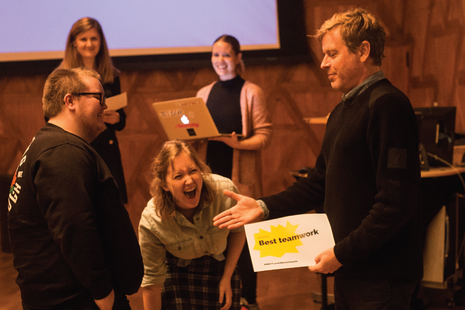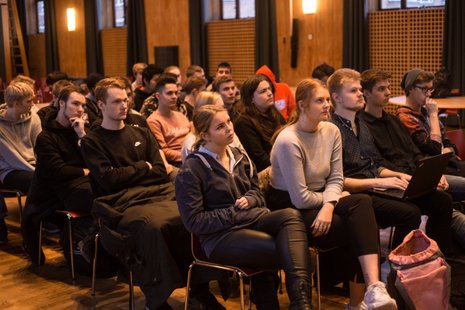Educational game on Mental Health
By 2020, depression will be the second leading cause of global disability and by 2030 it will be the number one contributor to disease burden worldwide[1].
While Denmark is known to be of the happiest countries in the world, many Danes face mental struggles at some point in their lives, or know someone who is.
Research has shown that approximately 20% of the Danish population (which equals to about 700,000-800,000 adults) will experience mental health problems during the course of one year. Young adults aged 16- 34 are most likely to be affected, with women overrepresented. In Denmark, depression, anxiety disorders, and drug addiction are the most common causes of mental health problems[2].
Mental disorders cause tremendous economic costs and burden to society. One reason for this is stigmatization and misconceptions of mental illnesses and addictions[3]. Having dark thoughts and not being able to sleep, can you call that a ‘real disease’? In Europe, but also globally, governments are not addressing these issues to the degree that is required.
Welcome to Lulu Lab! Through our mental health game, we want to raise awareness about mental health issues and make it easier for peers, parents, teachers, and everyone in society, to talk openly about their health.
Lulu Lab is co-creating a new game about mental health with NEXT Media High School students in Copenhagen, Denmark
We have worked with 40 NEXT Media High School students in Copenhagen to co-create our new game about mental health. Over a period of 4 weeks, the students (aged 17 to 20) worked in groups to brainstorm on mental health issues, create game content and visuals, develop a game prototype, do user testing, and even think about customer validation and business models. After 4 weeks, the students presented 10 amazing ideas and prototypes. Topics included anxiety, autism, paranoia and depression.
The Lulu Lab team will combine all these creative ideas with further research and co-creation, to finally develop the first game level about mental health. The game can be played by adolescents, parents and anyone else who wants a better understanding of certain mental health issues.
Quick facts about our co-creators!
% have daily struggles with their mental health
% propose sleep as the best solution to their mental health problems
% have experienced mental health problems
% do not experience or know of any help/tools from their school for mental health
References:
[1] Videbech, P., & Deleuran, A. (2016). The Danish Depression Database. Clinical epidemiology, 8, 475-478. doi:10.2147/CLEP.S100298
[2] Sommar, M. (2016). Mental health among youth in Denmark: Who is responsible? What is being done?
[3] Trautmann, S., Rehm, J., & Wittchen, H. U. (2016). The economic costs of mental disorders: Do our societies react appropriately to the burden of mental disorders?. EMBO reports, e201642951.
Mental Health Game
In collaboration with 40 NEXT Media High School students in Copenhagen, we are developing a prototype of an educational game about Mental Health. Some of the topics discussed are anxiety, autism, stress, paranoia and depression.
The purpose of this game is to raise awareness about mental health issues, and to make it easier for students, teachers and family to speak openly about their health, and to enable them to share personal experiences in a safe space.











